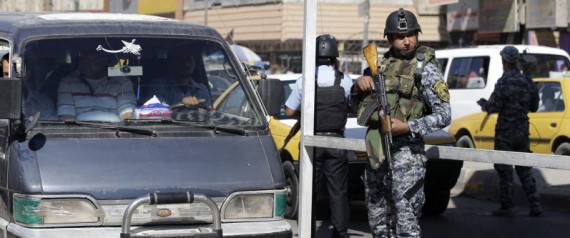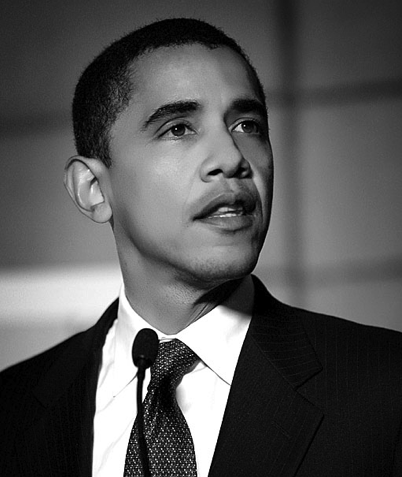- Thread starter
- #21
Program To Train Iraqi Troops Could Become 'Bottomless Pit' Of U.S. Money, Report Warns

Program To Train Iraqi Troops Could Become 'Bottomless Pit' Of U.S. Money, Report Warns

BAGHDAD The speaker of Iraq's parliament on Monday accused neighboring nations of meddling in Iraqi affairs and signaled it will only get worse if the country is seen as vulnerable after U.S. troops leave at the end of the year.
Speaker Osama al-Nujaifi, a Sunni Muslim, did not name the Mideast nations and did not offer specifics. Iraq's Sunnis long have worried about Iran's burgeoning influence in Baghdad, where the Shiite-dominated government has built ties with Tehran since the 2003 fall of Saddam Hussein.
Top U.S. officials, including Defense Secretary Leon Panetta and Secretary of State Hillary Rodham Clinton, voiced similar concerns over the weekend.
"Iraq now suffers from points of weakness," al-Nujaifi told a news conference in Baghdad. "If neighboring countries see that Iraq is weak and incapable of protecting its borders and internal security, then definitely there will be interference. This interference does exist now."
Limiting Iran's influence in Baghdad was a top U.S. pitch to keep American troops in Iraq past the Dec. 31 withdrawal deadline set in a 2008 security agreement. Washington has feared that meddling by Iran, a Shiite Muslim theocracy, could inflame tensions between Iraq's majority Shiites and minority Sunnis, setting off a chain reaction of violence and disputes across the Mideast.
About 39,000 U.S. troops remain in Iraq, down from 166,000 in October 2007, the peak of the American military surge to curb sectarian killings that brought the country to the brink of civil war. Nearly all will leave after Iraq's government and the U.S. failed this month to reach an agreement on a few thousand to stay and continue training security forces.
Speaking to reporters in Bali, Indonesia, Panetta noted that an estimated 40,000 U.S. troops will be stationed across the Mideast even after the Iraq withdrawal, including about 23,000 in neighboring Kuwait.
"So we will always have a force that will be present and that will deal with any threats from Iran," Panetta said.
Iraq is located between Iran and Sunni powerhouse Saudi Arabia. Iraq has seen terrorist traffic cross over its Syrian border and is grappling with a rebel force in its north that has for years targeted Turkey.
Al-Nujaifi suggested stepped up diplomatic talks across the Mideast "because a stable Iraq will bring stability to the whole region."
With the military withdrawal, the U.S. Embassy in Baghdad will shoulder much of the responsibility of training Iraqi forces, with the help of a small number of NATO troops. But a report released early Monday cast deep doubt on the Embassy's ability to do so, noting that a State Department program to train Iraqi police lacks focus, could become a "bottomless pit" of American money and may not even be wanted by the Iraqi department it's supposed to help.
The findings by the U.S. Special Inspector General for Iraq Reconstruction paint what is supposed to be the State Department's flagship program in Iraq in a harsh light. It found that only a small portion about 12 percent of the millions of dollars budgeted will actually go to helping the Iraqi police.
The "vast preponderance of money" will pay for security and other items like living quarters for the people doing the training, the review found. It also said that although the State Department has known since 2009 it would be taking over the training program, it failed to develop a comprehensive and detailed plan for the training.
"Without specific goals, objectives and performance measures, the PDP (Police Development Program) could become a 'bottomless pit' for U.S. dollars intended for mentoring, advising and training the Iraqi police forces," the report stated.
Moreover, the Iraqi government has yet to sign off on the program and doesn't seem to want it. The report quoted Adnan al-Asadi, who oversees daily operations at Iraq's Ministry of Interior (MOI) as suggesting the U.S. should spend the money on something for the American people instead.
"What tangible benefit will Iraqis see from this police training program? With most of the money spent on lodging, security, support, all the MOI gets is a little expertise, and that is if the program materializes. It has yet to start," al-Asadi said.
Program To Train Iraqi Troops Could Become 'Bottomless Pit' Of U.S. Money, Report Warns



 , and he did it with honor.
, and he did it with honor.